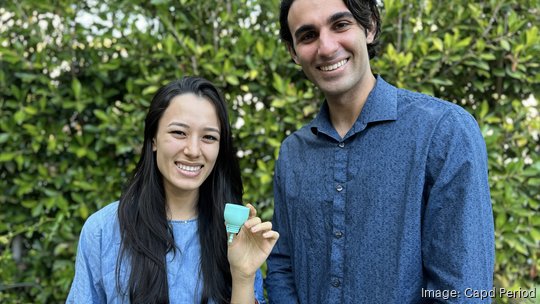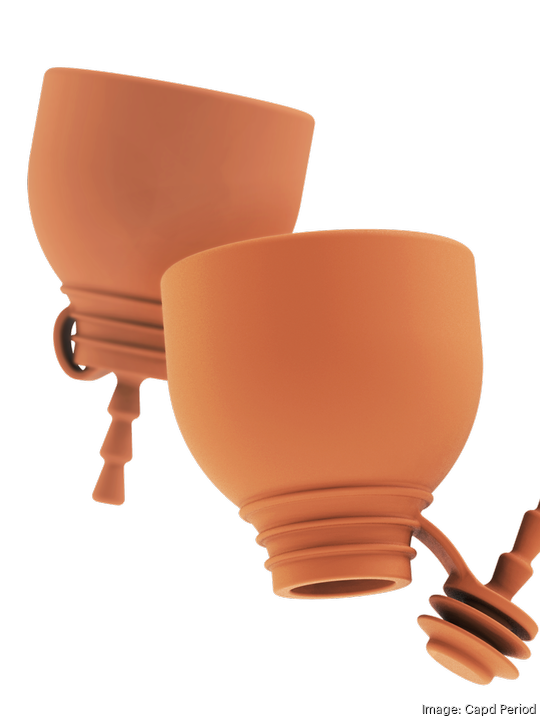
Armed with a used 3D printer, Los Angeles native Hannah Wilen co-founded a startup out of Duke University – and if she’s right, it could disrupt the menstrual health industry.
Altogether, Wilen estimates she and her fellow co-founder have funneled about $6,000 into Capd Period, the bootstrapped firm she started while pursuing her master’s of science and quantitative management at Duke.
The concept is a menstrual cup with a cap – “a cup you can empty without removing it from your body,” she said.
“Just open the cap, and then everything comes out,” she said. “Then close it up so you don’t have to deal with all the inconveniences … like washing it out with clean water in a public restroom.”
Born at Duke University
The idea came out of the Innovation Co-Lab, a maker space she frequented as a Duke engineering undergrad that has a wall of 3D printers. The idea solidified in grad school as she started contemplating how to put what she was learning into practice to solve a real problem.
“Some of the things we learned was how to use data to drive decisions, using customer data to understand what people are looking for,” she said.
But it was personal, too. Her whole life she had struggled with menstrual cups – “there is no easy way to use it in public.” So she used the analytics skills she was developing at Duke to explore the problem. While using Google Analytics, she realized she wasn’t the only one struggling.
“One thing we found was that thousands of people every year search for the term ‘menstrual cup with valve,’ which actually didn’t exist until we came along,” she said.

But Wilen didn’t have big investors at her disposal to bankroll her solution.
So she bought a used 3D printer for $1,000 and about $500 worth of materials. She did her own rapid prototyping, printing molds and filling them with silicon in her own kitchen. Then she self-tested the cups. Wilen and co-founder Neil Bhatia cut costs further by writing their own patent (they still had to spend a “few thousand” on legal fees, but she estimates all costs combined – from the printer to those fees – came to about $6,000).
The firm secured its first outside capital in January by winning the 2023 Westly Prize for Young Social Innovators, a $40,000 prize that will enable the distribution of 10,000 Capd Cups to people in Uganda.
That’s a big part of the mission. As a pending B-Corp company, Capd Period has teamed up with a nonprofit to distribute cups in Uganda, where it can be difficult to find clean water.
“We really care about our impact on the world globally,” Wilen said. “Part of our mission is to fight period poverty.”
One cup can be reused for 10 years, she said. Capd Period plans to donate part of the firm’s proceeds to distribute the cups in Uganda.
In the U.S., the plan is to sell cups directly to consumers on its e-commerce site, hopefully some day moving to retail.
But there’s a big barrier – and that’s period stigma, something she said Capd Period plans to fight with social media campaigns.
“Period stigma is a big barrier to a lot of people in the world wanting to try new period products, even talking about their periods,” she said. “That’s why we’re really committed to period education, menstrual health advocacy. I think just with more education, people will be able to explore new period options that might work for their bodies better.”
Capd Period is based in Santa Monica, California, and has a team of seven, including Wilen and Bhatia, as well as a creative director and four social media interns.